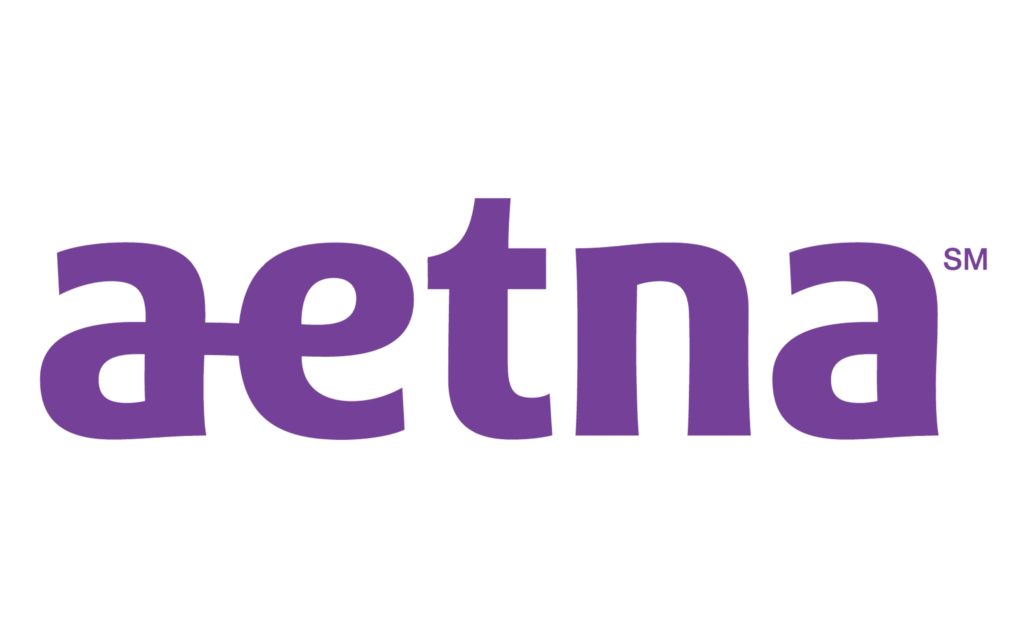Choosing Carolina Recovery Solutions in Asheville, NC
When it comes to finding the right addiction treatment center for cocaine addiction, Carolina Recovery Solutions in Asheville, NC stands out as a leading choice. They offer comprehensive addiction treatment services that are specifically designed to address the unique needs of individuals struggling with addiction. With a focus on evidence-based treatment approaches, Carolina Recovery Solutions provides a supportive and therapeutic environment for those seeking recovery.
Comprehensive Addiction Treatment Services
Carolina Recovery Solutions offers a range of services that encompass every stage of the recovery journey. Their comprehensive addiction treatment services include:
- Detoxification: Carolina Recovery Solutions provides a safe and medically supervised detoxification process to help individuals safely manage withdrawal symptoms during the initial phase of recovery.
- Counseling and Therapy: Individual and group counseling sessions are integral components of the treatment programs at Carolina Recovery Solutions. These sessions provide a supportive environment for individuals to explore the underlying causes of their addiction and develop effective coping strategies.
- Therapeutic Modalities: Carolina Recovery Solutions utilizes various evidence-based therapeutic modalities, such as cognitive-behavioral therapy (CBT), dialectical behavior therapy (DBT), and motivational interviewing. These modalities help individuals develop the skills and tools necessary to maintain long-term sobriety.
- Aftercare Support: Recognizing the importance of ongoing support after completing a treatment program, Carolina Recovery Solutions offers aftercare support services. This may include relapse prevention planning, ongoing counseling, and access to support groups.
Specialized Drug Rehab Programs
Carolina Recovery Solutions takes a holistic approach to addiction treatment, addressing the physical, emotional, and psychological aspects of recovery. Their specialized drug rehab programs are tailored to meet the specific needs of individuals struggling with cocaine addiction. These programs provide a structured and supportive environment where individuals can focus on their recovery journey.
The specialized drug rehab programs at Carolina Recovery Solutions include:
- Individualized Treatment Plans: Each individual receives a personalized treatment plan that takes into account their unique circumstances, needs, and goals. This individualized approach ensures that the treatment is tailored to address their specific challenges and promotes long-term success.
- Dual Diagnosis Treatment: Carolina Recovery Solutions recognizes the connection between substance use disorders and co-occurring mental health disorders. They provide integrated treatment for individuals with dual diagnosis, addressing both conditions simultaneously.
- Family Involvement: Carolina Recovery Solutions understands the importance of family support in the recovery process. They encourage family involvement and offer family therapy sessions to help repair relationships and establish a strong support system.
- Holistic Therapies: In addition to traditional therapeutic approaches, Carolina Recovery Solutions incorporates holistic therapies to promote overall well-being. These may include yoga, mindfulness practices, art therapy, and fitness programs, among others.
By choosing Carolina Recovery Solutions in Asheville, NC, individuals can benefit from the expertise of their experienced professionals and the comprehensive range of addiction treatment services. With a focus on long-term recovery and improved well-being, Carolina Recovery Solutions is dedicated to empowering individuals to overcome cocaine addiction and build a healthier future.
Understanding Cocaine Addiction
To effectively address cocaine addiction, it is crucial to have a comprehensive understanding of the condition. This section will delve into the impact of cocaine withdrawal, as well as the diagnosis and treatment of cocaine withdrawal.
The Impact of Cocaine Withdrawal
Cocaine withdrawal occurs when an individual who has been using cocaine heavily reduces or ceases their drug intake. It is important to note that withdrawal symptoms can manifest even if the user still has some cocaine in their system.
Symptoms of cocaine withdrawal may include:
- Cravings
- Depression
- Fatigue
- Lack of pleasure
- Anxiety
- Irritability
- Sleepiness
- Agitation or extreme suspicion
- Paranoia
Cravings and depression, in particular, can persist for months after discontinuing long-term heavy use of cocaine.
Diagnosis and Treatment of Cocaine Withdrawal
The diagnosis of cocaine withdrawal typically involves a physical examination and a comprehensive history of cocaine use. In some cases, medical testing may also be conducted to assess the individual’s overall health and the impact of cocaine use.
Symptoms of cocaine withdrawal generally diminish over time. In severe cases, a live-in treatment program may be recommended. Medications can be used to alleviate withdrawal symptoms, and counseling is often employed to address the addiction itself. It is important to note that cocaine addiction is challenging to treat, and relapse can occur. Therefore, treatment should be tailored to the individual’s needs, with outpatient care being as effective as inpatient care for most individuals. Additionally, during the withdrawal process, there is a risk of suicide or overdose, underscoring the importance of professional support and guidance.
By understanding the impact of cocaine withdrawal and the diagnostic and treatment approaches, individuals can make informed decisions regarding their journey to recovery. Seeking professional help, such as that provided by Carolina Recovery Solutions in Asheville, NC, can greatly enhance the chances of overcoming cocaine addiction and achieving long-term sobriety.
Cocaine Addiction Treatment Options
When it comes to treating cocaine addiction, there are various options available that can help individuals on their path to recovery. These options typically include detoxification and medical management, as well as therapeutic approaches for long-term recovery.
Detoxification and Medical Management
Detoxification, often the first step in the treatment process, involves the removal of cocaine and its byproducts from the body. This process allows the individual to overcome the physical dependence on the drug. During detoxification, individuals may experience withdrawal symptoms, which can include craving, depression, fatigue, lack of pleasure, anxiety, irritability, sleepiness, and sometimes agitation or extreme suspicion or paranoia.
In some cases, medical management is necessary to support individuals during the detoxification phase. Medications may be prescribed to manage withdrawal symptoms and reduce cravings. These medications can include antidepressants, anticonvulsants, and medications to address specific symptoms such as insomnia or anxiety.
Therapeutic Approaches for Recovery
Once detoxification is completed, individuals can benefit from various therapeutic approaches to support their long-term recovery from cocaine addiction. These approaches aim to address the underlying causes of addiction and provide individuals with the tools and coping strategies necessary to maintain sobriety.
One effective therapeutic approach is participation in therapeutic communities (TCs). TCs are drug-free residences where individuals in recovery from substance use disorders help each other change their behaviors. These communities often require a 6- to 12-month stay and provide supportive services for successful re-integration into society.
Counseling and therapy are also crucial components of cocaine addiction treatment. Individual counseling can help individuals explore the underlying causes of their addiction and develop strategies to avoid relapse. Group therapy in Charlotte, NC provides a supportive environment where individuals can connect with others who have similar experiences and share their challenges and successes.
In addition to counseling, lifestyle changes are often encouraged to support long-term recovery. These changes may include adopting healthy habits, engaging in regular physical activity, building a strong support network, and making positive changes in one’s social environment.
It’s important to note that treatment for cocaine addiction should be tailored to the individual’s specific needs. What works for one person may not work for another, so it’s crucial to seek professional guidance to determine the most suitable treatment approach.
By combining detoxification and medical management with therapeutic approaches, individuals can increase their chances of successfully overcoming cocaine addiction and maintaining long-term sobriety. The journey to recovery may be challenging, but with the right support and treatment, individuals can embark on a new beginning and reclaim their lives.
Support and Resources for Substance Use
When seeking treatment for substance use, it’s important to have access to support and resources that can aid in the recovery journey. In Canada, individuals struggling with substance use, including cocaine addiction, can benefit from a range of services and helplines designed to provide assistance and guidance.
Canada-wide Services for Substance Use
Canada offers comprehensive services for anyone in need of help with substance use, regardless of their location. These services are available 24/7 and provide support for various aspects of substance use, including overdose prevention. Whether you’re seeking information, resources, or immediate assistance, these services are just a call or click away.
| Service Type | Description |
|---|---|
| National Helpline | Dial 1-800-668-6868 for immediate assistance and guidance regarding substance use. This helpline serves as a reliable resource for individuals seeking help and support. |
| Online Parent Support Groups | These support groups are specifically designed to assist parents seeking help and guidance in supporting their loved ones dealing with substance use (source). |
| Provincial and Territorial Services | Each province and territory in Canada provides its own health and support services for individuals struggling with substance use. These services cater to specific regional needs and can provide valuable assistance throughout the recovery process. |
Helpline and Text Support Services
Helpline and text support services are available in Canada to provide immediate assistance for individuals of different age groups and frontline workers facing substance use challenges. These services offer a convenient way to seek help and support, ensuring that individuals have access to resources whenever they need them.
If you’re looking for support or guidance related to substance use, consider reaching out to these helpline and text support services:
- Helpline for Substance Use: Adults, youth, and frontline workers can seek assistance by calling the helpline number specific to their region. These helplines are staffed by professionals who can provide information, resources, and support tailored to individual needs.
These helpline and text support services play a vital role in connecting individuals with the help they need, offering a compassionate and understanding environment for those seeking support for cocaine addiction and other substance use issues.
By leveraging the availability of Canada-wide services, helplines, and text support services, individuals can access the necessary support networks throughout their recovery journey. These resources are designed to provide assistance, information, and guidance, empowering individuals to take steps towards a healthier and drug-free life.
Long-Term Effects of Cocaine Use
Understanding the long-term effects of cocaine use is essential in comprehending the gravity of the consequences associated with this addictive substance. Prolonged cocaine use can have detrimental effects on both physical and psychological well-being, as well as increase the risk of various health complications and comorbidities.
Physical and Psychological Consequences
Long-term cocaine use can lead to severe physical consequences, affecting multiple organs within the body. According to the National Institute on Drug Abuse (NIDA), these consequences include:
- Gastrointestinal issues such as tears and ulcerations in the gastrointestinal tract, leading to weight loss and malnourishment.
- Cardiovascular problems, including chest pain resembling a heart attack, an increased risk of stroke, inflammation of the heart muscle, deterioration of heart function, and aortic ruptures.
- Neurological complications such as intracerebral hemorrhage, balloon-like bulges in cerebral blood vessels, movement disorders like Parkinson’s disease, and impairment of cognitive functions such as attention, impulse inhibition, memory, decision-making, and motor tasks.
The method of cocaine administration can also lead to specific adverse effects. Smoking crack cocaine, for example, can cause lung damage, while injecting cocaine can result in puncture marks and an increased risk of contracting infectious diseases like HIV and hepatitis C.
Psychologically, long-term cocaine use can have significant impacts. It may contribute to the development of mood disorders, anxiety disorders, and suicidal tendencies. Additionally, cocaine use has been associated with an increased risk of traffic accidents and violent behavior. Polysubstance use, particularly alcohol consumption, is prevalent among individuals using cocaine.
Health Risks and Comorbidities
Cocaine use disorder (CUD) is not only associated with physical and psychological consequences but also with various health risks and comorbidities. Chronic cocaine use can aggravate inflammatory diseases and disrupt immune functions, potentially leading to the progression of cardiovascular, respiratory, or infectious diseases. It has also been linked to conditions such as acute kidney injury, hepatotoxicity, disseminated intravascular coagulation, HIV infection, and hepatitis C virus (HCV) infection.
The presence of psychiatric comorbidities is common among individuals with CUD, including mood disorders, anxiety disorders, and suicidal tendencies. The use of cocaine has also been associated with an increased risk of traffic accidents and violence. It is worth noting that polysubstance use is prevalent, with alcohol consumption being particularly common among individuals using cocaine.
Understanding the long-term effects of cocaine use underscores the importance of seeking professional help and comprehensive addiction treatment services. Carolina Recovery Solutions in Asheville, NC, offers specialized programs designed to address the unique challenges of cocaine addiction and provide the necessary support for individuals on their journey to recovery.
Promising Medications and Treatments
Advancements in the field of cocaine addiction treatment have paved the way for promising medications and treatments. Researchers have been exploring various pharmacological approaches to help individuals overcome their addiction and prevent relapse. These advancements offer hope for those seeking effective treatment options.
Advancements in Cocaine Addiction Treatment
Researchers have made significant progress in understanding the neurobiology of cocaine dependence, which has led to the discovery of several promising medications. These medications have shown encouraging results in controlled clinical trials, offering new possibilities for effective treatment (PubMed Central).
One such advancement is the development of a cocaine vaccine that stimulates the immune system to create cocaine-specific antibodies. These antibodies bind to cocaine and prevent it from entering the brain. In clinical trials, patients with high antibody levels experienced a significant reduction in cocaine use. However, it’s important to note that only 38 percent of vaccinated subjects attained sufficient antibody levels.
Additionally, medications that block cocaine euphoria or reduce cocaine craving have shown promise in preventing relapse. GABAergic medications like baclofen, tiagabine, and topiramate, as well as the glutamatergic medication modafinil, have demonstrated potential in this regard. Moreover, disulfiram, an old treatment for alcohol dependence, may also have efficacy for preventing cocaine relapse. Propranolol, a medication commonly used for other conditions, may be helpful in promoting an initial period of stable abstinence among more severely addicted patients.
Potential Pharmacological Approaches
The potential pharmacological approaches for cocaine addiction treatment continue to expand. Ongoing research aims to identify and develop medications that can target specific neurobiological mechanisms associated with addiction. While further studies are needed to fully understand the effectiveness and safety of these treatments, they hold promise for improving outcomes in cocaine addiction treatment.
It is important to note that medications and treatments should be used in conjunction with comprehensive addiction treatment services and therapeutic approaches. A personalized treatment plan, tailored to an individual’s specific needs, is crucial for successful recovery.
By staying informed about advancements in cocaine addiction treatment, individuals and healthcare providers can explore and discuss the most suitable options for their journey towards recovery. It is always advisable to consult with a healthcare professional or addiction specialist to determine the best course of treatment based on individual circumstances and needs.
Addressing Medical Comorbidity in Cocaine Use Disorder
When it comes to addressing cocaine use disorder (CUD), it is essential to consider the impact of medical comorbidity on long-term outcomes and survival. A study analyzed the relationship between baseline medical comorbidity and long-term medical outcomes, such as hospitalization and mortality, among patients seeking treatment for CUD.
Impact of Baseline Comorbidity
Baseline comorbidity plays a significant role in the health outcomes of individuals with CUD. The study found that patients with higher baseline comorbidity, as measured by the Veterans Aging Cohorts Study (VACS) Index score, were 3.5 times more likely to die compared to those with a lower VACS score (Source). This highlights the importance of addressing and managing medical comorbidities alongside CUD treatment.
CUD has been associated with serious systemic complications and frequent use of healthcare resources, such as emergency department admissions and hospitalizations. After 12 years of follow-up, the study reported 1,292 emergency department admissions and 308 hospitalizations among participants with CUD. The incidence rate of emergency department admission and hospitalization was 18.6 admissions per 100 person-years.
Individuals with CUD may experience a range of medical comorbidities, including cardiovascular, respiratory, and infectious diseases. Cocaine use can exacerbate inflammatory conditions and alter immune functions, potentially worsening the progression of these diseases. Additionally, CUD has been associated with acute kidney injury, hepatotoxicity, disseminated intravascular coagulation, HIV infection, and hepatitis C virus (HCV) infection.
Psychiatric comorbidities are also common among individuals with CUD. Mood disorders, anxiety disorders, and suicidal tendencies are frequently observed in this population. Furthermore, cocaine use has been linked to an increased risk of traffic accidents and violence. Polysubstance use, particularly alcohol consumption, is prevalent among individuals with CUD.
Long-Term Medical Outcomes and Survival
Addressing medical comorbidity in CUD is vital for improving long-term medical outcomes and survival rates. The study reported a mortality rate of 1.4 deaths per 100 person-years among patients with CUD. This emphasizes the need for comprehensive treatment approaches that consider both addiction and medical comorbidities in order to enhance the overall health and well-being of individuals with CUD.
By addressing medical comorbidity alongside CUD treatment, healthcare providers can help individuals with CUD achieve better health outcomes and improve their chances of long-term survival. This underscores the importance of integrated treatment approaches that consider the unique needs and challenges associated with CUD and its associated medical comorbidities.







